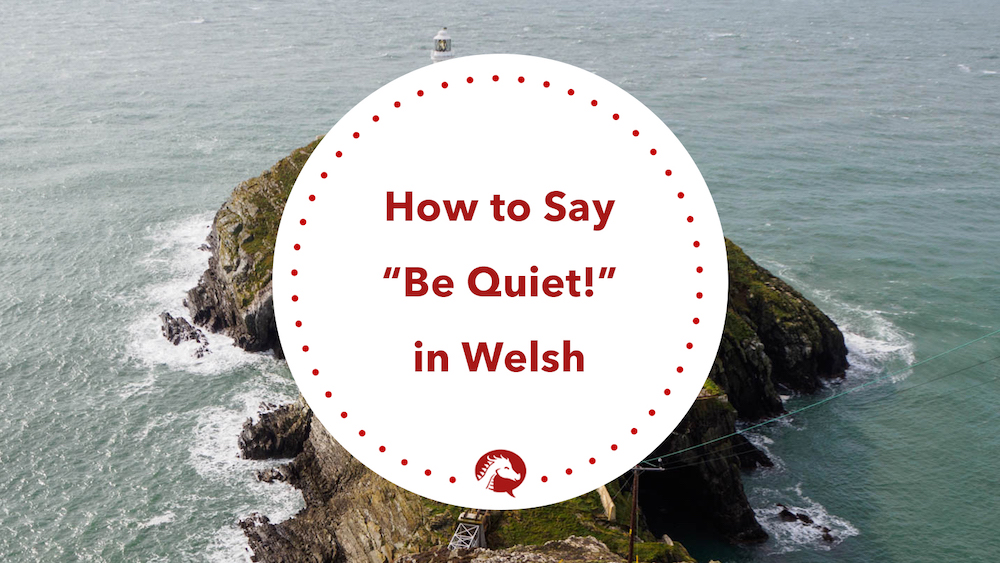
Let’s face it – no one really enjoys being impolite but sometimes you have no choice but to tell someone to be quiet. This may be because they are being too loud, as anyone with rambunctious children will understand, or because they are being offensive. Whatever the reason, it is useful to know how to say Shut up! or Be quiet! in Welsh, even if it’s just to understand when other people say it.
Warning: Most of these expressions are very rude, so it is best to avoid using them, especially if you are a learner who does not yet understand all the subtleties of the language.
1. Cau dy geg!
Cau dy geg literally translates as shut your mouth and is heard most often in the north of Wales. Below you can watch the iconic scene in the film Hedd Wyn where a monoglot solider tells his sergeant to ‘shut his mouth’ in Welsh after being lambasted for not being able to speak English.
The plural is caewch eich cegau (all of you shut your mouths).
2. Cau dy ben!
The equivalent southern expression is cau dy ben (plural: caewch eich pennau) which translates as shut your head. The verb cau may be pronounced in various ways include cia, ca and ce depending on where you go in the south.
3. Cau hi!
Another northern expression is simply cau hi (literally shut it). Cau may also be pronounced as ceua.
4. Taw!
Taw (singular) or tewch (plural) is the way you’d say quiet down or be quiet in Welsh. It comes from the verb tewi meaning to become quiet or silent.
A common phrase featuring taw is Rho daw arni! (lit: put silence on it).
You can also use tawela (singular) and tawelwch (plural) from the verb tawelu meaning to quieten.
5. Bydd yn ddistaw!
A slightly nicer way of asking someone to be quiet is to use the phrase bydd yn ddistaw or bydd yn dawel. To make it plural, simply change bydd to byddwch.
6. Gat dy lap
The expression gat dy lap (or gad dy lap) comes from the southern word lap(an) meaning to gossip or jabber in Welsh.
7. Cau dy hop(ran)!
The word hopran comes from the English word hopper (a tapering container through which grain passed into a mill) but its figurative meaning is mouth. It is used more in the north than the south.
8. Cau dy jops!
Another predominantly northern expression is cau dy jops with jops coming from the English word chops.
9. Rho hosan ynddi!
Here is a good expression that should sound familiar to English ears! Rho hosan ynddi literally means put a sock in it. The plural would be rhowch instead of rho.
10. Distawrwydd!
Our final expression is a little more formal in that you’d expect a teacher or a librarian to use it towards a group of children. It literally means Silence!
Bonus: Hisht / Shwsh
In English, we have the exclamation Shh! whereas in Welsh they say Hisht! or Shwsh! Both are used to call for silence.
